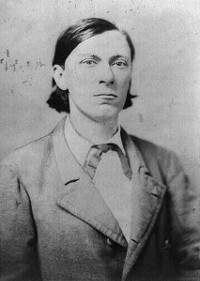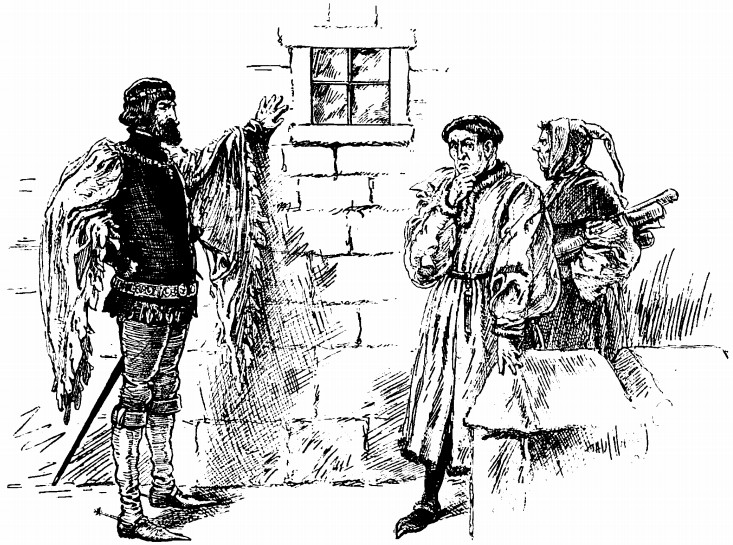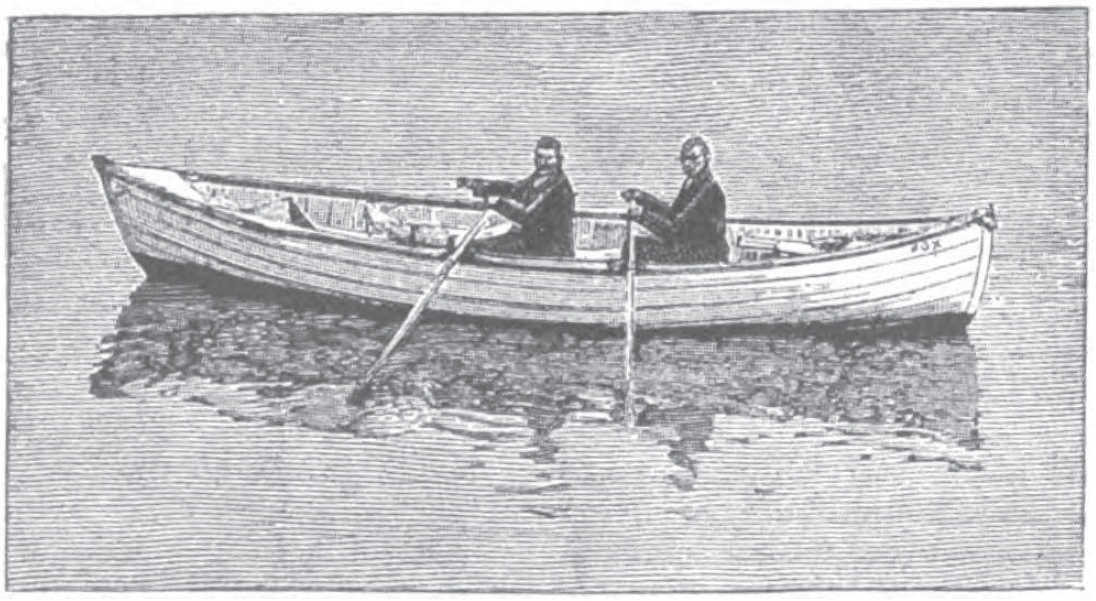
celsitude
n. height; elevation; altitude
faineant
n. one who does nothing; an idler
ataraxia
n. a pleasure that comes when the mind is at rest

celsitude
n. height; elevation; altitude
faineant
n. one who does nothing; an idler
ataraxia
n. a pleasure that comes when the mind is at rest

A poor artist is visited by a time traveler from the future. The traveler is an art critic who has seen the artist’s work and is convinced that he’s one of the greatest painters of his time. In looking at the artist’s current paintings, the critic realizes that the artist hasn’t yet reached the zenith of his ability. He gives him some reproductions of his later work and then returns to the future. The artist spends the rest of his life copying these reproductions onto canvas, securing his reputation.
What is the problem here? Kurt Gödel showed in 1949 that time travel might be physically possible, and there’s no contradiction involved in the critic arriving in the artist’s garret, giving him the reproductions, and later admiring the painter’s copies of them — that loop might simply exist in the fabric of time.
What’s missing is the source of the artistic creativity that produces the paintings. “No one doubts the aesthetic value of the artist’s paintings, nor the sense in which the critic’s reproductions reflect this value,” writes philospher Storrs McCall. “What is incomprehensible is: who or what creates the works that future generations value? Where is the artistic creativity to be found? Unlike the traditional ‘paradoxes of time travel’, this problem has no solution.”
(Storrs McCall, “An Insoluble Problem,” Analysis 70:4 [October 2010], 647-648.)

Secessionist Roger A. Pryor was visiting Fort Sumter just before the outbreak of the Civil War when he accidentally drank a bottle of poison. A Union doctor named Samuel Crawford pumped his stomach, saving his life.
“Some of us questioned the doctor’s right to interpose in a case of this kind,” wrote Union captain Abner Doubleday. “It was argued that if any rebel leader chose to come over to Fort Sumter and poison himself, the Medical Department had no business to interfere with such a laudable intention.”
“The doctor, however, claimed, with some show of reason, that he himself was held responsible to the United States for the medicine in the hospital, and therefore he could not permit Pryor to carry any of it away.”

If a game is anything, it’s a set of rules. And playing a game requires following these rules. If we take this definition seriously, then a cheater, one who breaks the rules, not only doesn’t deserve to win — he literally isn’t playing the game. University of Waterloo philosopher Bernard Suits writes:
The end in poker is not to gain money, nor in golf simply to get a ball into a hole, but to do these things in prescribed (or, perhaps more accurately, not to do them in proscribed) ways: that is, to do them only in accordance with rules. Rules in games thus seem to be in some sense inseparable from ends. … If the rules are broken, the original end becomes impossible of attainment, since one cannot (really) win the game unless he plays it, and one cannot (really) play the game unless he obeys the rules of the game.
So, strictly speaking, it’s impossible for a cheater to win a game — he can win only by following the rules. “In a game I cannot disjoin the end, winning, from the rules in terms of which winning possesses its meaning. I of course can decide to cheat in order to gain the pot, but then I have changed my end from winning a game to gaining money.”
(Bernard Suits, “What Is a Game?”, Philosophy of Science 34:2 [June 1967], 148-156.)

Edmund Wilson’s 1948 poem “The Pickerel Pond” has a novel feature — backward rhymes:
The lake lies with never a ripple
A lymph to lave sores from a leper
The sand white as salt in an air
That has filtered and tamed every ray;
Below limpid water, those lissome
Scrolleries scribbled by mussels
The floating dropped feathers of gulls;
A leech like a lengthening slug
That shrinks at a touch, ink and orange;
A child’s wrecked Rio Janeiro,
One fortress of which flies a reed
The cleft and quick prints of a deer …
Each pair of line endings (ripple/leper, air/ray) reverse one another in pronunciation, reflecting the pond’s mirror-like surface. They’re called amphisbaenic rhymes, after the amphisbaena, a Greek monster whose two heads allow it to move in either direction. Wilson’s poem contains 70 twisting stanzas of such rhymes.

In Henry Dudeney’s Canterbury Puzzles, Sir Hugh De Fortibus takes his chief builder to the walls of his donjon keep and points to a window there.
“Methinks,” he says, “yon window is square, and measures, on the inside, one foot every way, and is divided by the narrow bars into four lights, measuring half a foot on every side.”
“Of a truth that is so, Sir Hugh,” says the builder.
“Then I desire that another window be made higher up whose four sides shall also be each one foot, but it shall be divided by bars into eight lights, whose sides shall be all equal.”
Bewildered, the builder says, “Truly, Sir Hugh, I know not how it may be done.”
“By my halidame!” exclaims De Fortibus in pretended rage. “Let it be done forthwith. I trow thou art but a sorry craftsman, if thou canst not, forsooth, set such a window in a keep wall.”
How can it be done?

“Such a question as, Why does everything in Spain look Spanish? is one of those apparently idiotic questions that opens up quite unexpected areas of vision.” — Northrop Frye, “Spirit and Symbol,” Words With Power, 2008

In 1896 two New Jersey clam diggers made a bold bid for fame: They set out to cross the North Atlantic in a rowboat, a feat that had never been accomplished before. In this week’s episode of the Futility Closet podcast we’ll follow the adventure of George Harbo and Frank Samuelsen, which one newspaper called “the most remarkable event in the way of ocean navigation that ever transpired.”
We’ll also meet some military mammals and puzzle over a thwarted burglar.

During World War II, Alan Turing enrolled in the infantry section of the Home Guard so that he could learn to shoot a rifle. After completing this section of his training he stopped attending parades, as he had no further use for the service. Summoned to account for this, he explained that he was now an excellent shot and this was why he had joined.
“But it is not up to you whether to attend parades or not,” said Colonel Fillingham. “When you are called on parade, it is your duty as a soldier to attend.”
“But I am not a soldier.”
“What do you mean, you are not a soldier! You are under military law!”
“You know, I rather thought this sort of situation could arise,” Turing said. “I don’t know I am under military law. If you look at my form you will see that I protected myself against this situation.”
It was true. On his application form Turing had encountered the question “Do you understand that by enrolling in the Home Guard you place yourself liable to military law?” He could see no advantage in answering yes, so he answered no, and the clerk had filed the form without looking at it.
“So all they could do was to declare that he was not a member of the Home Guard,” remembered Peter Hilton. “Of course that suited him perfectly. It was quite characteristic of him. And it was not being clever. It was just taking this form, taking it at its face value and deciding what was the optimal strategy if you had to complete a form of this kind. So much like the man all the way through.”
(From Andrew Hodges, Alan Turing: The Enigma, 1992.)

New York radio station WQXR used to inflict this pronunciation test on prospective announcers — try reading it aloud:
The old man with the flaccid face and dour expression grimaced when asked if he were conversant with zoology, mineralogy, or the culinary arts. ‘Not to be secretive,’ he said, ‘I may tell you that I’d given precedence to the study of genealogy. But since my father’s demise, it has been my vagary to remain incognito because of an inexplicable, lamentable, and irreparable family schism. It resulted from a heinous crime, committed at our domicile by an impious scoundrel. To err is human … but this affair was so grievous that only my inherent acumen and consummate tact saved me.’
It’s a minefield. In Another Almanac of Words at Play, Willard R. Espy lists the pronunciations that were considered correct:
flaccid FLACK-sid inexplicable in-EX-plic-able dour DOO-er lamentable LAM-entable grimaced gri-MACED irreparable ear-REP-arable conversant KON-ver-sant schism SIZ-m zoology zoh-OL-o-ji heinous HAY-nus mineralogy miner-AL-o-ji domicile DOMM-i-sil culinary KEW-li-ner-y impious IM-pee-yus secretive see-KEE-tiv err ur precedence pre-SEED-ens grievous GREEV-us genealogy jan-e-AL-o-ji inherent in-HERE-ent demise de-MIZE acumen a-KEW-men vagary va-GAIR-y consummate (adj.) kon-SUMM-it incognito in-KOG-ni-toe
Getting 20 of the 25 “stumpers” right was considered excellent. But that was 40 years ago, and even at the time Espy found 21 dictionary listings that accepted different pronunciations. “So not to worry when you don’t sound like WQXR,” he wrote. “One man’s AB-do-men is another man’s ab-DOUGH-men.”